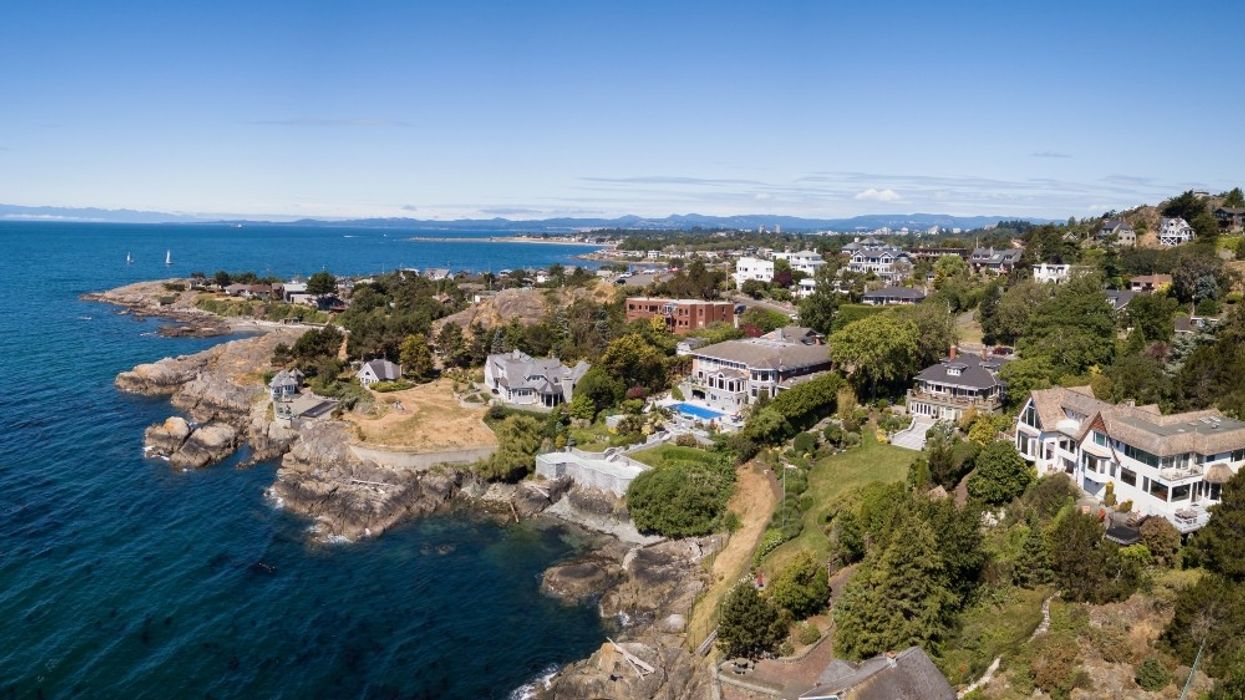A real estate investment will always benefit you in the long run, but the hard part of playing the realty game is timing: understanding when to sell and when to buy as markets ebb and flow with the economy. In British Columbia's real estate market, Vancouver Island makes this a little bit easier.
While the Lower Mainland market has largely been reactive to this year's numerous (and ongoing) Bank of Canada interest rate hikes, Vancouver Island has remained relatively stable -- a few small bumps, rather than a rollercoaster.
"Sales have increased month over month and pricing remains relatively stable, with just a slight dip over this time last month," says Christine Ryan, Vancouver Island-based Sales Manager at Sotheby’s International Realty Canada. "This would indicate that the rate hike has contributed to slight pricing adjustments, but has had no effect on the purchasing activity of buyers."
Meanwhile, over in Metro Vancouver, residential sales increased by about 12.8% from September to October, according to the latest statistics by the Real Estate Board of Greater Vancouver (REBGV), but were actually down 45.5% compared to October 2021, and down 33.3% compared to the October average of the past 10 years.
Ryan says that after a relatively quiet summer and early fall season, the sales activity the Vancouver Island real estate market is currently experiencing indicates that prices are more or less an accurate reflection of market conditions, and that "buyers are responding favourably."
"Sales are up overall 17% over the previous month in Greater Victoria, with a 3% increase elsewhere on the Island," Ryan says -- and that's often the case on the Island this time of year.
READ: Amidst Uncertainty, Vancouver Island’s Market Remains a Beacon of Stability
A quantitative way to identify which way a real estate market is leaning is to look at the sales-to-active-listings ratio (SAR), dividing the number of sales by the total amount of active listings. A ratio of under 12% is usually defined as buyers market, a ratio over 20% generally indicates a lean towards sellers, and anything in between shows balance in the market. According to the Vancouver Island Real Estate Board's statistics, October registered 249 sales and the amount of active listings hit 1,360, giving us a ratio of 18.3% that indicates a healthy balance.
"We typically have a relatively healthy fall market on the Island. Our temperate climate attracts snowbirds who tend to travel west and property shop in the fall. I would suspect that the desire to be settled in a new home for Christmas and the New Year is a driver for this seasonal increase in market activity. Clearly, motivated sellers and motivated buyers are coming together to strike a deal with the guidance of their respective realtors."
As Ryan has previously said, Vancouver Island is blessed with one of the most stable real estate markets in Canada, and that stability becomes even more appealing when the surrounding markets are in a constant state of flux and uncertainty. Extreme highs can be fun, but that can often mean extreme lows are possible too.
Sometimes, there's nothing better than stability and reliability.
This article was produced in partnership with STOREYS Custom Studio.





















